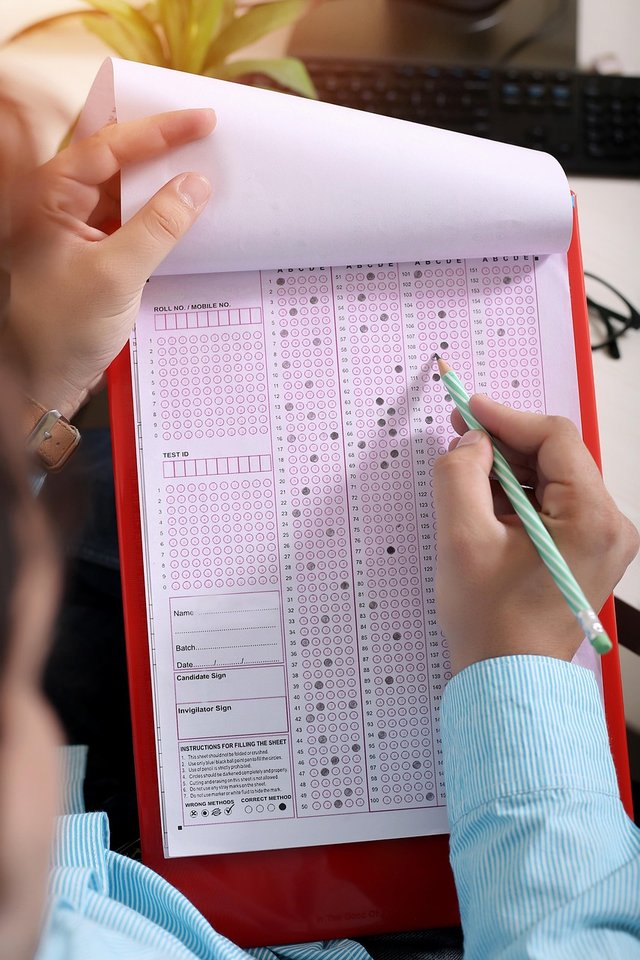Examination Fears/Anxiety
Exams!, a word that word used to often send fear through my body. I’ve never been the best at handling exam pressure, and for a long time, exam anxiety often controlled my academic life in ways I’m only just beginning to understand.
Share a personal story about a time exam anxiety nearly overwhelmed you, but you overcame it.
Let me share a story from my senior secondary school days. It was my first big exam – WAEC. I had read and revised like my life depended on it, as our physics teacher would say then, it was the leg of the madman that we should grab, knowing that the exam was paid for us by the government,and failing it would mean rewriting and this time paying to register, so it was something we had to pass at one-sitting, for us in government schools.
For days, I cut off social media, barely watched TV, even my sleep got affected because I wanted to make sure I passed excellently. But the morning of my Book-keeping paper, something strange happened.
As I walked into the hall, my palms were sweaty, and my heart was pounding like it was about to jump out of my chest. I sat down, and as they handed the question paper, I had a mental blackout. The same formulas I had gone over a thousand times? Gone. I stared at the paper for nearly 15 minutes, not knowing where to start. People around me were already writing fast, but I just sat there blank, confused and afraid.
It wasn’t until I remembered something my class teacher always said – “breathe and take the first step, your brain will catch up.” I closed my eyes, took a deep breath and turned the paper to the second page. The question there looked familiar and I started with it. Slowly, my confidence returned and before I knew it, I was writing again. I didn’t score an A, but I passed the paper. That day taught me something – anxiety doesn’t mean you’re not prepared. It just means your mind is under pressure.
How exam fear has impacted your academic journey?
Throughout my academic journey, anxiety has often crept in trying to mess things up. Sometimes, even when I’m fully prepared, fear creeps in that maybe I’ve forgotten something. Other times, it’s the fear of failure itself – what will people say if I don’t pass? Will I have to repeat this class? This fear can be so heavy it affects the way you study and perform. I started having constant headaches during exams, sleepless nights, before tests. The worst part was that Most people just say “you worry too much,” but only you know how much it eats at you.
I remembered a time during my second year in the university where I entered the exam hall and blanked out, I had the exams paper in front of me, but didn't know what to write, the night before exams I was reading a totally different part of the course, it was a Computer engineering course, so I was totally focused on the coding aspect of the course, I was not sure of what to read because of anxiety. On getting to the exams hall, the question paper was shared, on seeing the questions I was shocked and confused as what I expected did not show, I could not even attempt any question. I had to seek other students for help, but I managed to pass the course.
That day, I realized that managing anxiety was just as important as studying itself. After that experience, I started reading more about how to handle stress. I began spacing my reading time, taking breaks, doing small meditations, and even talking to close friends before exams. I also tried using past questions to prepare for real exam situations and reduce surprises. These little efforts didn’t make the anxiety disappear completely, but it became better and more manageable.
If you could design an exam system, what features would include to reduce student anxiety towards examination?
Now, if I had the opportunity to redesign the examination system to help reduce anxiety, here’s what I would do:
1. Creating a Continuous Assessment-Based System:
Instead of making exams a one-time do-or-die affair, I’d include multiple assessments throughout the term. This way, students can be evaluated based on overall performance rather than just one day’s memory recall. It would also make learning a process instead of just exam-targeted.
2. Provide Mental Health Support:
I would include trained counselors or therapists that students can talk to when they feel blown away. Talking helps a lot, and sometimes anxiety can be reduced just by someone listening.
3. Flexible Exam Time:
Not all students think at the same speed. Some need more time to process questions, especially those with learning difficulties. Allowing flexible or extended time will reduce the tension on slow-paced students.
4. Practice-Based Exams:
Rather than just theories and memorization, I would include practical or open-book assessments where understanding is more important than cramming
5. Provide Relaxing Exam Environment:
Making the exam halls less tense could help. Maybe friendly invigilators who don’t make the hall feel like a prison. These small things go a long way.
Sometimes, I feel the school system cares more about performance than the person behind the performance. But students are human too. We get scared, overwhelmed, and tired. Redesigning the system to be more human-centered would reduce the mental effect that exams often bring.
To every student out there reading this, please know that exam anxiety is more common than you think. You’re not weak or unprepared just because you feel nervous. Learn to breathe, take small breaks, and remind yourself that one paper cannot define who you really are.
Thanks for reading my little story. I hope someone out there connects with it and feels a little less alone, but motivated. If you’ve experienced something similar or have tips that work for you, you can share it in the comment section – let’s learn from each other and help each other.
@imohmitch @promisezella @isha-rehman you are invited to participate in this contest



My twitter share:
https://x.com/Samuel62685837/status/1934763142657007688?t=HNh7ouHU7jRw9Z0p6A01DA&s=19